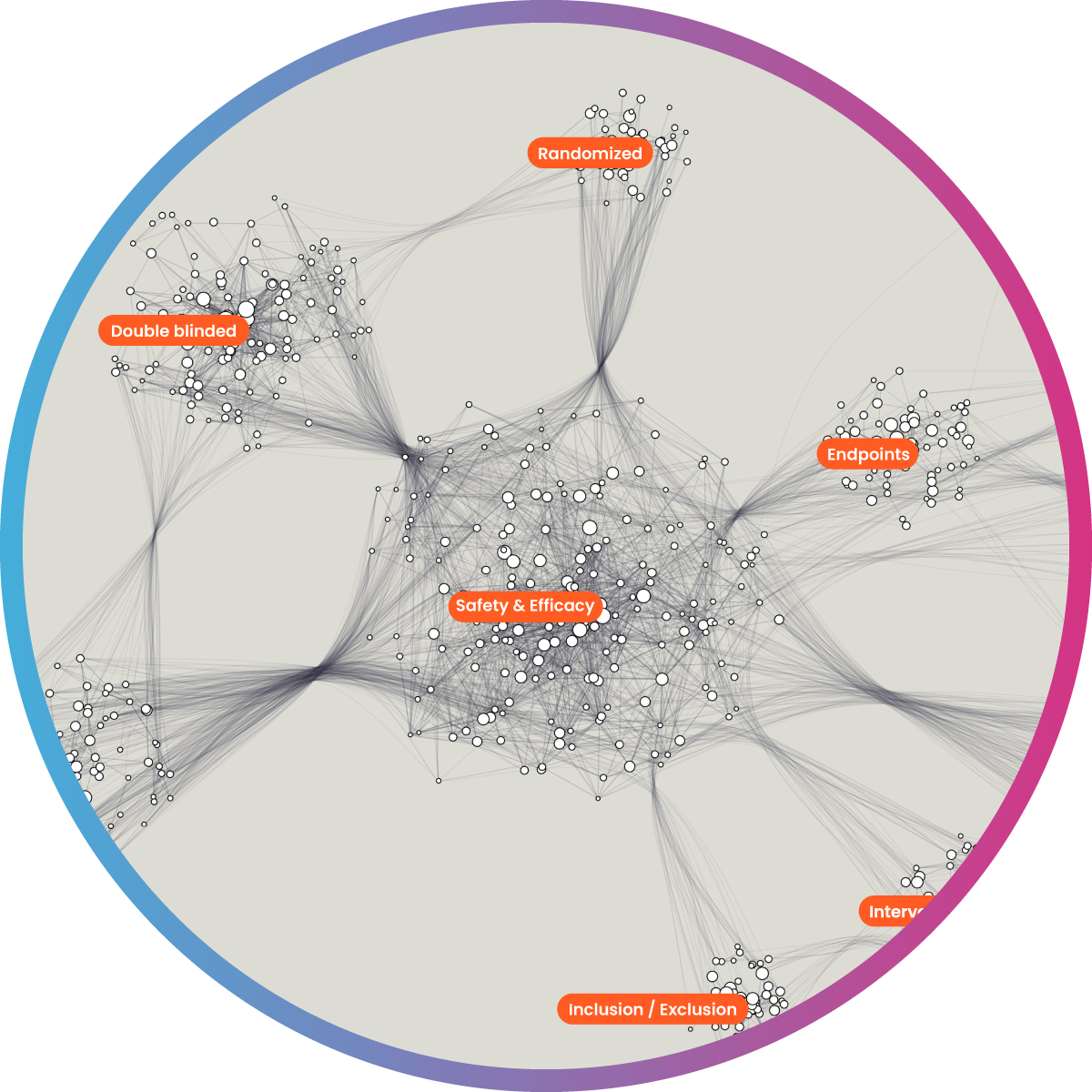Clinical pharmacologists understand that drug development is a complex and time-consuming activity. The goal is ambitious: to develop or repurpose drugs that cure or relieve the symptoms of a disease. But the rate of success is low. Each drug development journey begins with a great deal of uncertainty, and as it progresses, the chances of significant discoveries diminish even further. Some reports estimate that it can cost more than a billion dollars[i] and take over 15 years to convert a molecule into a medicine and put it in a patient’s hand.[ii]

The emergence of big data, however, has breathed new life into the biopharmaceutical industry. Data opens the door to discoveries previously hidden by the burden of clinical trials. With data, artificial intelligence and machine learning (AI/ML) models can be trained to simulate the outcome of interactions between compound and target. The combination of AI/ML and high-quality data has revolutionized drug development strategies and promises to overcome some of the challenges that slow drug development progress. Screening technologies, aligned to multi-omics data, are accelerating the translation of research hypotheses into clinical practice.
At Excelra, our focus is providing the high-quality, analysis-ready data sets required to power this acceleration. To ensure we’re giving our clients exactly what they need to progress their drug development journeys, our clinical pharmacology experts follow a rigorous process for data curation and preparation for analysis. This is a day in the life of one of our expert team members:
Identifying the clinical data objectives
My day begins with reviewing my ongoing tasks and preparing to deliver excellent service to the client. All scientific inquiry begins by asking questions, so I start by engaging with the client’s objectives. What are they trying to achieve? Which data will help them achieve it? How will they use the data? When do they need the data? How will I deliver it? And where?
Without answers to these questions, there’s the potential for confusion or misalignment. Like all of Excelra’s clinical pharmacology specialists, I pride myself on understanding in fine detail the precise requirements of the client. I have a scientific qualification and personal experience in pharmacology research, so I’m able to frame my questions in a way that reveals the client’s precise objectives. The domain expertise I share with my colleagues in Excelra is what sets us apart. We speak the client’s language and we understand their demands. With the client’s objective guiding the day’s activities, I can proceed.
Developing data solutions
My ultimate aim is to provide a solution to help the client’s researchers overcome a challenge they have encountered on the drug discovery journey. They may need help optimizing the clinical development plan or balancing dosage to achieve maximum clinical benefit with minimal adverse effects. Sometimes, a client has a scientific protocol already in place. In these cases, we can immediately proceed to build the best data set to meet their requirements. On other occasions, clients ask for our expert guidance in developing the scientific protocol. In these instances, we collaborate with the client to understand their needs, produce optimal parameters, and provide a data set designed to meet those specifications.
Once the protocol is in place, I design a search strategy. Once again, my scientific background helps when determining with the client the data characteristics and formats they require. Some clients request a demonstration of my data curation capabilities, which opens their eyes to avenues of interrogation they may not have considered previously. When the data requirements are established, I begin screening the most relevant publications and identifying relevant literature for my search.
At the end of my search, I’ll prepare the selected data and engage my Excelra colleagues during a rigorous quality control process that ensures all the provided data is without error and ready for the client’s analysis. Our quality control standards and our ability to optimally combine scientific expertise with cutting-edge technological solutions are recognized by our clients as key differentiators that keep them trusting us to provide clinical pharmacology data.
What other services do we provide?
Our clients repeatedly engage with us to provide clinical trial outcomes data sets (CTOD). But we have many other products and services to support their drug development programs, including PTRD and iQSP.
- Our preclinical toxicity report digitization (PTRD) service supports detailed evaluation of preclinical toxicology, helping our clients determine pharmacokinetic (PK), pharmacodynamic (PD), and toxicokinetic (TK) profiles of therapeutic targets within their discovery or pre-clinical portfolio.
- Our intelligent quantitative systems pharmacology (iQSP) service provides enriched, calibrated, context-specific data for use in our clients’ QSP models.
Whatever service our clients require, they depend on clinical pharmacology experts like me to provide it to them. I meet regularly with our clients to gather information, brainstorm creative solutions and maintain focus on the objective. I’m more than a detached service provider – I’m a collaborative member of the client’s team. Excelra sets an exceptionally high standard of service, and I take pride in delivering it.
Excelra’s clinical data expertise
All of our clinical data experts share the same diligence and determination to support our clients’ objectives. They have deep scientific domain knowledge and are able to draw on their clinical experience when working with our clients. They’re proactive and passionate and deliver on the trust our clients place in Excelra.
Whatever your drug development objective, our clinical pharmacology experts can help. Whether you need clinical trial outcomes data, digitized preclinical toxicology reports, or intelligent quantitative systems pharmacology data to power your QSP models – we can deliver.
For more information on our clinical data services, get in touch with our clinical data experts.

References:
[i] Wouters, O. J., McKee, M., & Luyten, J. (2020). Estimated research and development investment needed to bring a new medicine to market, 2009-2018. JAMA: The Journal of the American Medical Association, 323(9), 844–853. doi:10.1001/jama.2020.1166
[ii] Hughes, J. P., Rees, S., Kalindjian, S. B., & Philpott, K. L. (2011). Principles of early drug discovery: Principles of early drug discovery. British Journal of Pharmacology, 162(6), 1239–1249. doi:10.1111/j.1476-5381.2010.01127.x
How can we help you?
We speak life science data and help you unlock its potential.


